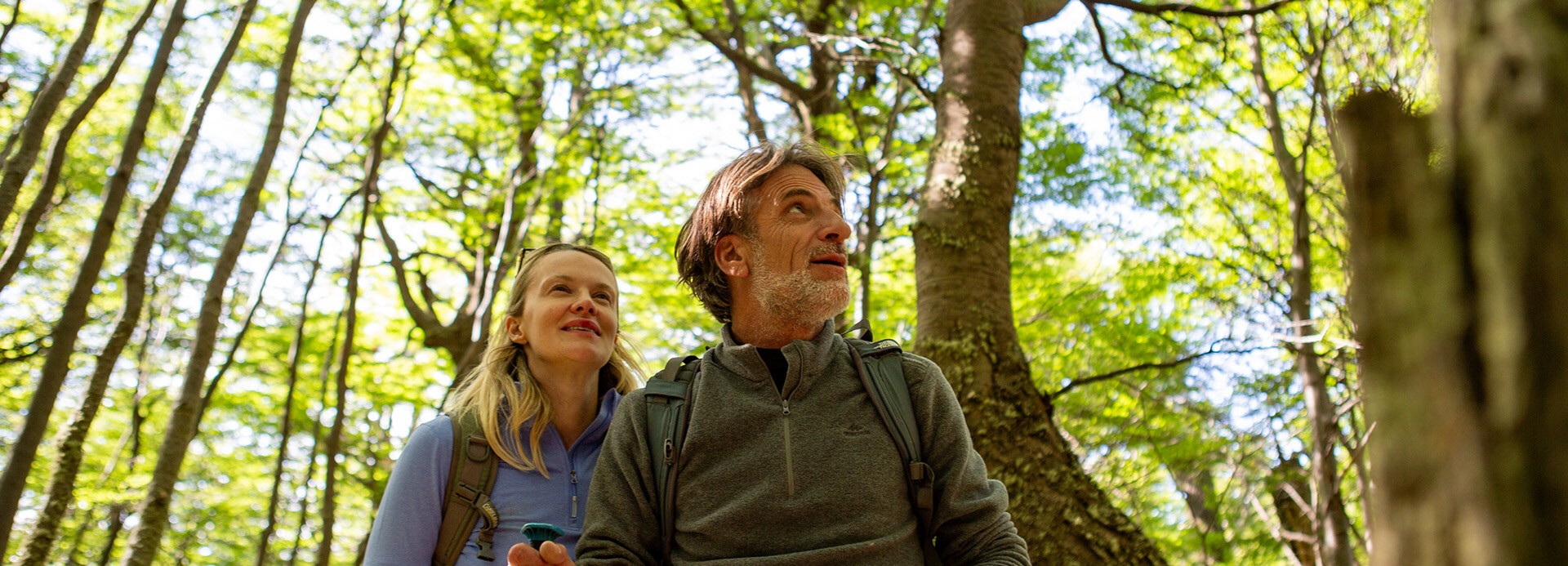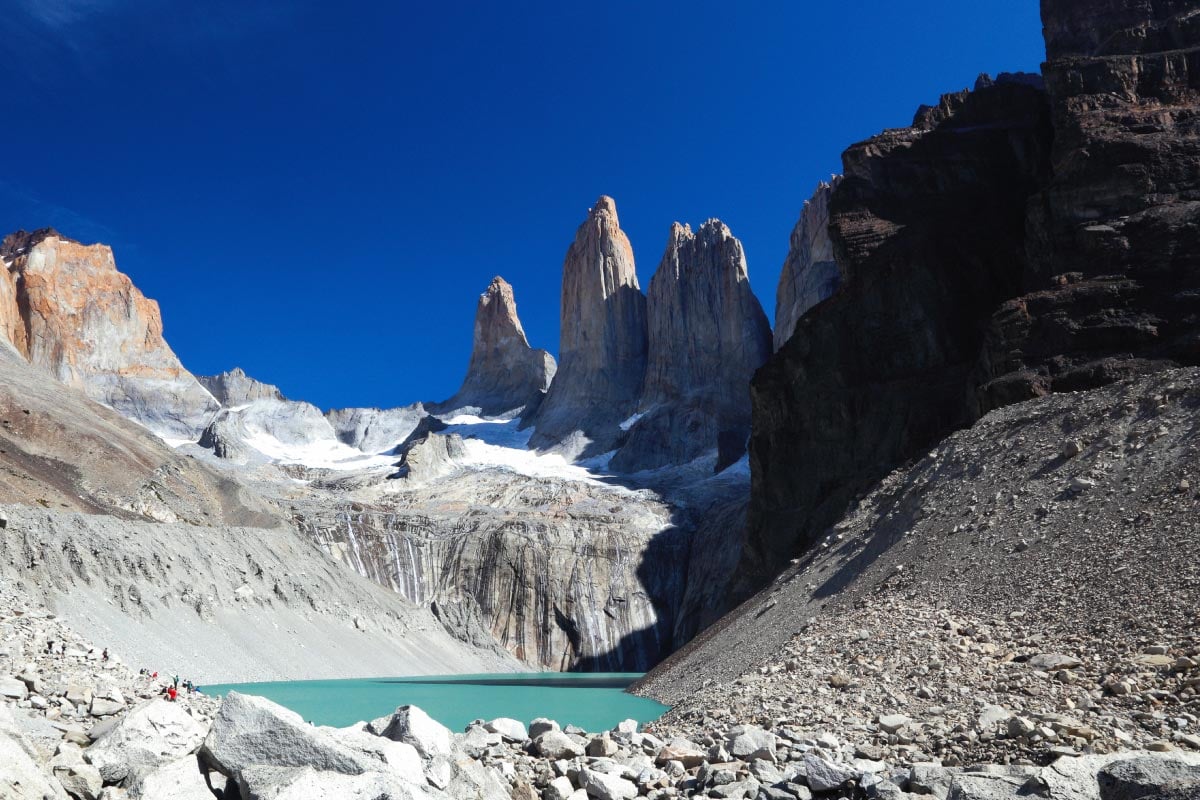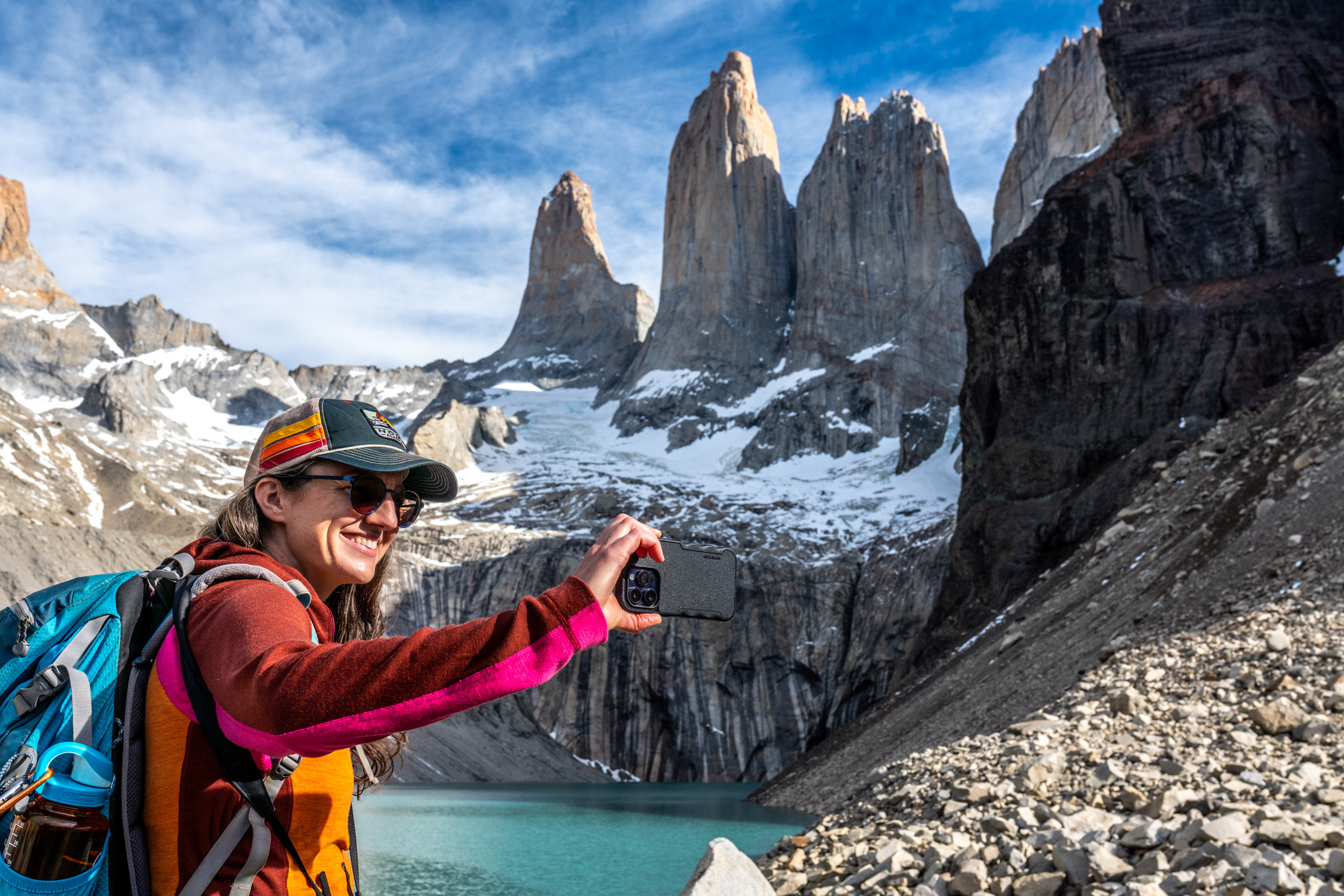Lenga beech forests: Small universes within Torres del Paine
Patagonia encompasses vast expanses of plains, rock formations, rivers, and is known for its diverse types of flora. The forests inside the Torres del Paine National Park color the landscape with the passing of each season, from a vibrant green full of vitality to the reddish and coppery colors that arrive with autumn. Today, let’s look at one of the most representative trees found in the forests in Patagonia: the lenga beech tree.
If you’ve ever taken the trail that leads to the base of the towers, Base Torres, you have come across the green oasis in the last stretch of the road that is the lenga forest. Here, the high treetops provide green foliage that protects you from the sun’s rays and allows you to navigate the path peacefully before facing the challenging Morrena section. This quiet stretch is among our visitors’ favorites on their way to the granite towers.
The lenga forest is home to many animals, and, if you pay attention, you may glimpse the Magellanic woodpeckers, Austral parakeets, Chilean flickers, or other forest birds that live here.
The lenga also boasts unique attributes for facing the adverse conditions of the Patagonian climate– which during the winter can reach sub-zero temperatures that can last for weeks, or even months. This is why the lenga has developed the ability to withstand temperatures as low as -20º C (-4º F), allowing it to survive throughout the year and remain firm in the Patagonian soil.
Lenga trees are also capable of adapting to thin and rocky soils, withstanding intense rainfall, and strong winds. What’s more, their frames can support the weight of several layers of snow.
Their fruit has the winged shape of a walnut, the seeds with three small wings enclosed in its woody shell, which is a 1/2 cm in diameter.
At Las Torres Patagonia, we understand the importance of the lenga tree for Torres del Paine National Park, which is why we have conducted various reforestation programs to help forest recovery in areas affected by wildfires that have devastated the region.
AMA Torres del Paine, an NGO financed by Las Torres Patagonia, has several nurseries that are cultivating small lenga saplings. This way, there is always a stock of trees ready for transplant, available for continued reforestation efforts.
If you ever are able to visit out national park forests, always remember don’t use lighters or stoves, or other devices that could start fires; don’t walk through unmarked areas and keep off-trail erosion to a minimum; don’t pull branches or leaves from the trees; and always carry out all the garbage you bring with you during your trip.
Just as the lenga forests protect and care for us on our journey, it is up to us to make sure that they are still there to accompany us on the road to our next adventure.
If you want to live more closely the experience of going deep into the Patagonian forests, you can join one of our excursions like the following: https://lastorres.com/circuitos-por-el-dia/tour-bosque-de-lenga/
Patagonia is waiting for you!



